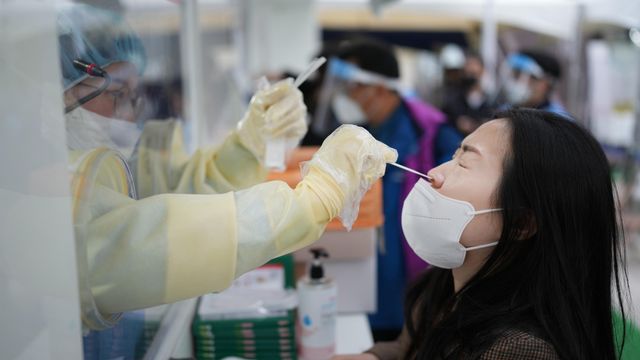No test is infallible: Doc recommends a COVID retest to be certain
Since the beginning of the pandemic, Covid test results have been black and white. If the virus is detected, you must quarantine - no second guessing, no second opinion, little if any clinical diagnosis from a medical professional. Now, a testing industry consultant thinks it's time to re-evaluate test results by actually evaluating the patient.
Posted — UpdatedSince the beginning of the pandemic, Covid test results have been black and white. If the virus is detected, you must quarantine – no second guessing, no second opinion, little if any clinical diagnosis from a medical professional.
Now, a testing industry consultant thinks it’s time to re-evaluate test results by actually evaluating the patient.
"I clicked on it and said detected and I almost fell over," Brianne Brown told WRAL Investigates about a Covid test she took last fall.
After feeling run down, Brown had tested for COVID-19 twice, two days apart. Both results were negative. A couple days later, her daughter had a headache. They both tested. The daughter’s test was negative, but Brown’s came back positive. The next day Brown, her husband, two sons and daughter all got tested again.
"All of our results came back and all of us were negative, including myself," Brown said. "At the moment, it was very frustrating," she added.
Brown told us she didn’t know what to think. "Is this a true positive or is this a false positive," she wondered.
When Brown voiced her concerns about testing accuracy, her health care provider told her that her single positive test trumped the negative tests, and the family quarantined.
"No test is infallible and you’re going to have false negatives and false positives," Dr. Glenn Braunstein told WRAL Investigates. Braunstein, a professor of medicine at Cedars Sinai Medical Center in Los Angeles, is also a consultant with the testing industry.
He admits that sometimes test results are wrong. "That’s basically true of any test, but it’s especially true with this test," he said.
Early on, people got tested at the advice of their doctors. Now, many people test as a precaution or as a necessity to keep their jobs if they’re not vaccinated.
Braunstein feels test results need to be treated differently, especially for those people.
"If you’re asymptomatic and not high risk, you haven’t been in a high risk situation, and for whatever reason tested positive, get retested," he suggests.
Local health departments and employers can decide how they want to treat mixed testing results.
But Braunstein is proposing a new model for Covid testing. He wants extra steps, like a medical decision that takes into account a patient’s situation and test result before confirming that they likely have COVID-19 and should isolate.
Braunstein also suggests a new protocol for those who thinks they received a false positive. If a person tests positive but has no symptoms and no known exposure, that person should isolate for 24 hours and retest. If they get a second positive result, it is likely they have COVID and should isolate. If follow-up tests are negative, he believes a doctor could decide the first test was a false positive which would clear people to return to work or school.
Braunstein says it’s okay to use an over-the-counter antigen test for the first retest. "An antigen test will tell you very rapidly if the first one was likely a true positive or possibly a false positive," he explains.
If the rapid test is negative, he suggests one more PCR test to be sure. "The doubling time of this virus is so fast that if the first test was a real positive the second [PCR] test will be even more positive," Braunstein says.
There are a lot reasons for false results like lab error or contaminated reagents and, in some cases, the test itself, according to Braunstein. "Not all PCR tests are created equal," he said. Different tests have different sensitivity levels.
Even the test makers say in their Food and Drug Administration applications that test results and a professional diagnosis should be standard procedure. In the race to slow the virus, most people skip that second part.
"I always think it’s a good rule of thumb that you should not hang your hat on a test alone. You need to put it into context," says Braunstein.
As we head into winter, Braunstein expects false positives will become more common leading to yet another concern. "It may very well be as we enter flu season and people are getting flu and there’s a lot of overlap of flu symptoms and Covid symptoms that this is going to come up more and more," he said.
While experts have said the PCR test will not return a positive for other viruses, those same FDA applications by test makers say other viruses can be detected.
The bottom line, Braunstein says, is that it’s okay to question a positive result if you don’t show symptoms and weren’t in a high-risk environment.
Brown did just that, but her mixed bag of results still leaves plenty of questions. "I think there’s enough evidence that the test isn’t always right," she said.
Related Topics
• Credits
Copyright 2024 by Capitol Broadcasting Company. All rights reserved. This material may not be published, broadcast, rewritten or redistributed.






